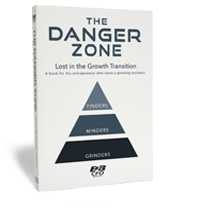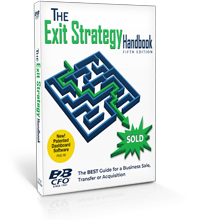
by Ania Kubicki | Jun 14, 2018 | B2B CFO® In The News
Source: http://seattlebusinessmag.com/business-operations/leaving-legacy-how-thoughtful-boomer-business-owners-are-retiring-without SEATTLE, WA – At 65, Charlie Lanasa has long grappled with how best to retire from BestWorth Rommel Inc., the Arlington-based sheet metal fabricator he acquired nearly two decades ago. After putting in 70-hour weeks for the company, which makes gas station canopies and custom siding for clients such as Krispy Kreme and Porsche Bellevue, he wasn’t sure he could let go. And, a couple of years back, he began to have another concern: “I started thinking, ‘What happens if I get hit by a truck?’” LaNasa says. “It would violate all my principles.” LaNasa has always taken pride in operating the business by three principles: Act ethically, provide good stewardship of the firm’s assets, and take care of his employees, customers, vendors and subcontractors. How could he find a new owner who shared his values and who would keep the business in Arlington and provide security for his 100 employees in a community of 19,000? LaNasa’s dilemma is one shared by many among the nation’s growing population of aging business owners. Project Equity, a Bay Area nonprofit, estimates baby boomers born between 1946 and 1964 own 2.34 million businesses across the country and have nearly 25 million workers on their payrolls. In 2017, owners 65 years or older accounted for 36 percent of all small businesses with annual revenue between $100,000 and $10 million, and 45 percent of midsize businesses with yearly revenue between $10 million and $100 million, according to Minneapolis-based Barlow Research Associates. In a 2015 U.S. Census Bureau survey of Washington state’s 183,000 employers, roughly half of the business owners who responded were 55...

by Ania Kubicki | Feb 25, 2012 | Archives
Pricing strategy, liquidity, capacity are key components to business success (This story is written by Debra Christein, a partner with B2B CFO who serves on the Board of Directors of the Women’s Exchange of Washtenaw, as well as co-chair of its annual conference, WXW Forum12.) Have you ever made a paper airplane? Did it fly? If you’re like me, probably not. And you know that it didn’t matter how many times you launched it, how fast you threw it or the angle – it would not fly, right? Also, if you’re like me, every once in a while you made one that flew. What was the difference? What special blend of tail height, wing breadth and body length made this piece of paper aerodynamic? Could you reproduce it in the next version? Could you produce success in a paper airplane ten times larger with a bunch of new features? Debra Christein Paper airplanes are a lot like business models. If a business model is not sound, if it’s not built to create a successful business, you can’t work hard enough or long enough to create a successful, sustainable company. The components of a successful business model are pricing strategy, capacity, infrastructure, and liquidity. Pricing strategy refers to the relationship of what you charge for your product or service to the cost of providing that service. If the price you can charge in your market does not cover the direct costs involved and an adequate portion of the general company costs, well, as the old saying goes – you can’t make it up in volume. In the airplane analogy, this...

by Ania Kubicki | Dec 27, 2011 | Archives
AllBusiness.com By: David Worrell Few positions in a company are as easily outsourced as those in the finance department. That’s great news for small companies looking to add strategic skills, and for larger companies looking to cut full-time staffing costs. Outsource the Right Positions You probably already outsource your tax preparation, either corporate or personal or both. Because taxes are generally a once-a-year event, having an expensive accountant on staff year round is usually not cost effective. The same might be true of a chief financial officer, an analyst, a controller, and even a bookkeeper. If you don’t need these people every day, you can easily outsource these positions.The extent to which you outsource your finance department depends on the volume of transactions, the complexity of your finances, and the amount of management information (decision support) you want. Find the Right Firm Firms offering outsourced finance personnel are quite common, from large national firms such as B2B CFO and Tatum to teams of just a few consultants working virtually. Search the terms “fractional CFO ” or “part-time CFO ” to get a good selection. Before bringing on a virtual finance team, be sure you have defined your needs. There is a huge difference between a good accountant and a strategic finance professional. If you have, or will have, a need for more than one role, consider hiring a firm that can provide more than one person on an as-needed basis. Splitting duties between unrelated contractors is likely to cause more confusion than it’s worth. Even a small firm with three to five professionals will be able to provide the skills...

by Ania Kubicki | Dec 8, 2011 | Archives
SOURCE: KPHO-TV Channel 5 (Phoenix, AZ) AUDIENCE: 416,028 DATE: 12/08/2011 HEADLINE: The best holiday gifts for your clients The best holiday gifts for your clients Updated: Dec 5, 2011 04:01 PM EST You probably wouldn’t give everyone in your family the same gift, so why would you choose the same gift for each of your clients? Here’s a trending story from Inc.com – featuring B2B CFO Partner Wendy Nelson. By: Marla Tabaka With the economy still in recovery, many small business owners are trying to decide whether they should give gifts to clients, what they should buy, and when they should send the gift so it stands out above the rest. Sometimes a simple, yet personalized, card is an appropriate solution to your budget woes. If you have a little more money to spend there is always the standard gift basket. But is “standard” really good enough for your best customers? “When choosing a holiday gift for clients, it is important to be thoughtful,” says Laurence Briggs, president and CEO of Republic of Texas Company Store. “When customers use our corporate gifting concierge service to add personalized touches to gifts, we always ask them to give us more information about their client. What holiday do they celebrate? What are their hobbies and interests? What is their industry?” Briggs reminds us that it is important to show your clients that you care by paying attention to the details. “You would be surprised to learn how many people who celebrate Hanukkah receive Christmas cards from their clients,” he says. That’s certainly not a good way to demonstrate your attention of detail...

by Ania Kubicki | Sep 30, 2011 | Archives
SOURCE: GO GILBERT! MAGAZINE DATE: 09/21/2011 Businesses in the spotlight Finding Financial Solutions: Jerry Mills uses his expertise to give corporate-level financial support to small and mid-size businesses By: SUSAN LANIER-GRAHAM In the mid-1980s, Jerry Mills was a manager at the accounting giant Arthur Anderson & Company in Phoenix. He examined the market and found a very real gap in support for mid-market companies. Mills realized that businesses often fall into traps in a time of growth because of the inability to manage cash flow effectively. While that management job falls to the Chief Financial Officer (CFO) in larger corporations, budgets don’t usually allow small and mid-sized businesses to fill that role. That’s where Mills knew he could help. In 1987, he launched B2B CFO to offer financial and management solutions to small and medium-sized companies. “Every company needs a CFO, but not every company can afford one. Our model makes it possible,” Mills explains. “Just as a company doesn’t need a full-time attorney, it doesn’t need a full-time CFO. We are there when they need us.” He adds that his company strives to provide customers with a sophisticated service at a cost they can afford. What began out of his home two decades ago now has more than 174 partners across the country, servicing more than 550 clients with combined annual sales totaling $5 billion and employing 30,000 people. For the second year in a row, Inc. magazine has named B2B CFO to the Inc. 500/5000 list of fastest-growing companies in America. “To be awarded this, especially during a recession, is quite an accomplishment,” Mills explains. “It’s also...








